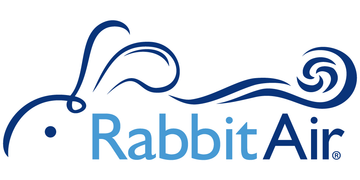Is An Air Purifier Safe for Birds?
Birds make for beloved companions, known for their keen intelligence and charming personalities. While many species of birds commonly kept as pets can live for an extremely long time their health can be delicate, particularly when it comes to their respiratory systems. In the wild, birds are used to fresh air and open skies, and so it is little wonder that their lungs can become compromised when exposed to high concentrations of pollutants.
It is an unfortunate fact that the air in our homes is on average much more polluted than outdoor air. By bringing a bird inside our homes we expose them to higher levels of particle and airborne chemical pollution, and unchecked this can make birds very ill. Common household products such as cleaning supplies and aerosol can damage their lungs, and more dangerous pollutants such as Aspergillus mold, cigarette smoke, and formaldehyde can be deadly.
Many bird owners know that to keep their birds healthy at home they need to manage their indoor air quality. Some common steps to keeping indoor air clean and safe for birds are to limit the use of harsh cleaning chemicals, to use paints and glues with low levels of volatile organic compounds (VOCs), and to avoid using non-stick Teflon coating to cook. While this can be very helpful in cleaning up the air at home, many bird owners want to go a step further and actively filter out pollutants from the air.
Air Purifiers and Your Bird's Health
Luckily, air purifiers are not only safe to use around birds they can even help to keep your bird healthy and breathing better. The most effective filtration will remove both particle pollutants such as mold as well as chemical contaminants. This is accomplished by using an air purifier that contains both a true HEPA filter as well as a charcoal based activated carbon filter. A true HEPA filter will remove the particle pollutants from the air, including dust, mold, pollen, and even some of the particles from smoke or fuel emissions. A charcoal based activated carbon filter will then go to work absorbing harmful chemicals from the air, including from cleaning supplies, off-gassing plastics, and other volatile organic compounds. Rabbit Air purifiers like the BioGS and MinusA2 utilize both true HEPA filters and charcoal based activated carbon filters to effectively and efficiently clean the air you and your bird breathe.
Using an air purifier reduces indoor air pollution and makes the air safer for your birds to breathe. To further protect your birds' delicate lungs, make sure to stay away from high ozone emitting air purifiers. It is best to use an air purifier that has ozone free settings, or ozone levels that are well below the maximum for human safety.
Air Purifiers and Your Health and Safety
In addition to providing cleaner air for your birds, adding an air purifier to your aviary can also help protect you and your family from the dander and debris that birds can produce. Some species of birds produce a fine keratin powder that helps to keep their feathers healthy and waterproof, but unfortunately for bird lovers this powder can quickly become overwhelming in a home. Even low powder producing birds can cause a significant decrease in home air quality, as dander, feathers, and other cage debris can float through the air and eventually settle on surfaces. When this powder and dander is inhaled, it can trigger allergic symptoms or even asthma attacks. Rarely, a more serious condition called hypersensitivity pneumonitis, or Bird Breeder's Lung, can be caused by exposure to particles of bird debris and droppings.
Using an air purifier with a true HEPA filter can significantly reduce the bird debris from the air, making your bird room a more pleasant place to spend quality time with your feathered friend, and helping to reduce symptoms in those with allergies.
Sources:- https://journals.tdl.org
- http://animal.discovery.com
- http://emedicine.medscape.com
An Air Purifier for the Nail Salon
Are Air Purifiers Safe for Babies?
Are Air Purifiers Safe for Birds?
